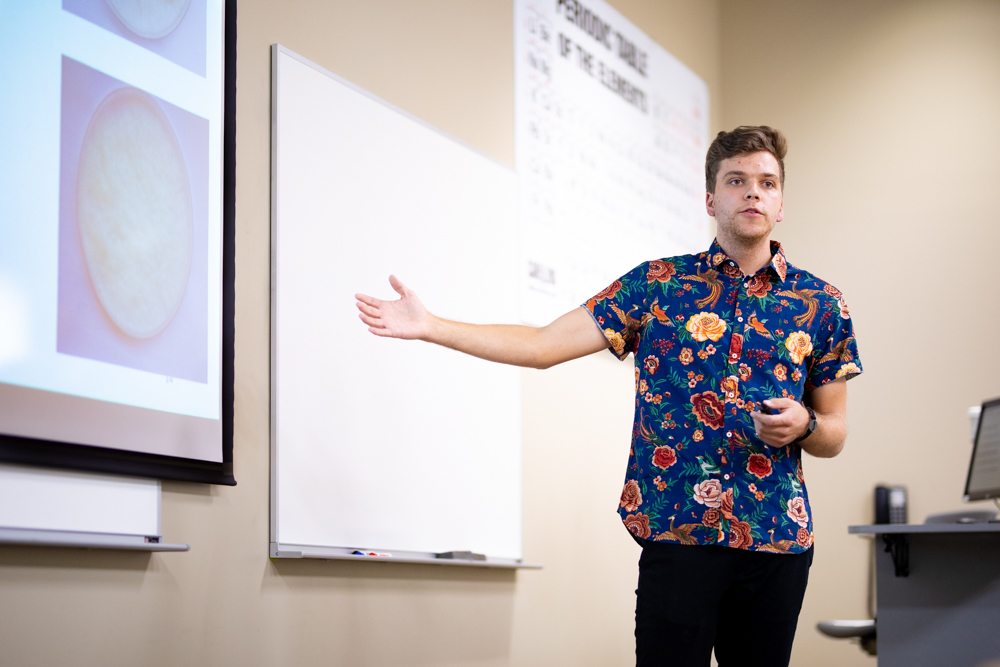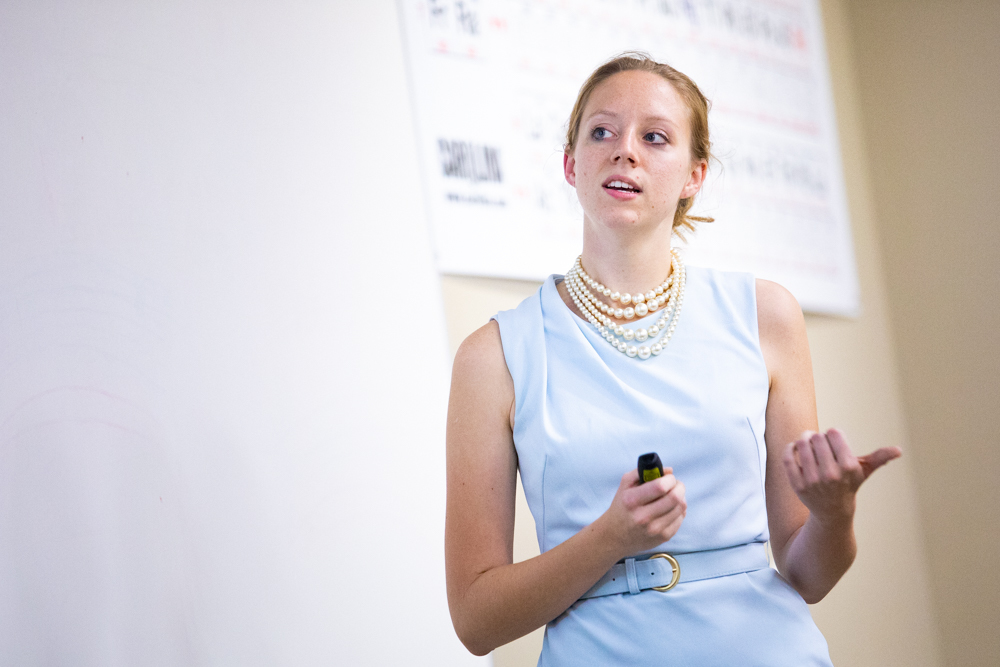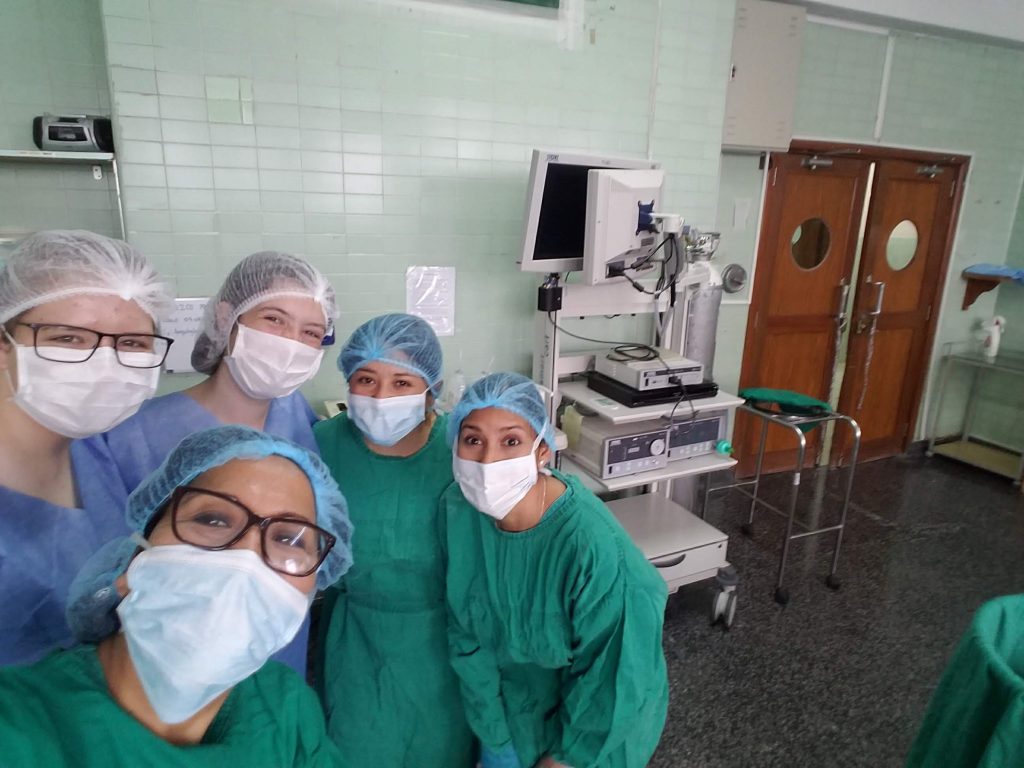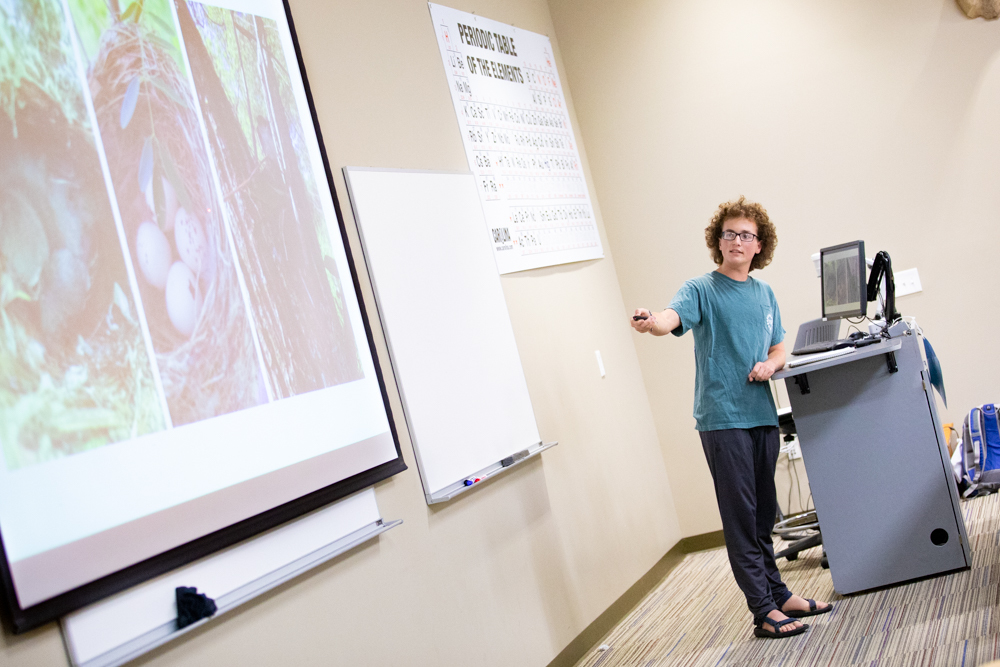Eleven Eastern Mennonite University students and graduates presented at the annual fall STEM Student Research and Internship Symposium.
Three students were selected for the National Science Foundation and its Research Experience for Undergraduates program (REU), a highly competitive and prestigious 10-12 week summer opportunity. Prospective participants apply directly to REU-funded sites in 19 research fields. Sometimes as many as 200 students apply for 10 or fewer positions.
Funding was also provided by EMU-specific research funds and grants, including the Kauffman and Miller Research Grants and the CT Assist Health Experiential Learning Program
Participants included:
Jonah Short-Miller and Maria Yoder: RING Finger Protein 11 (RNF11) modulates dopamine release — modeling Parkinson’s disease in Drosophila
Short-Miller and Yoder, both 2019 graduates, coauthored the research with Professor Jeff Copeland, Eve Champaloux and B. Jill Venton, with support from EMU’s Kauffman Miller research award, CT Assist, the National Institutes of Health, and Biogen-Idec at the University of Virginia.
Jacob Myers: Effects of Invasive Tree Species on Daily Nest Survival of Birds in Missouri River Riparian Forests
Myers, a sophomore in the National Science Foundation grant-funded STEM Scholars Engaging in Local Problems program, spent his summer with the Research Experience for Undergraduates (REU) at the University of South Dakota. His co-authors are Sierra Rider, Amanda Hegg, David Swanson and Mark Dixon.

James Paetkau: Analyzing Fungal Growth on Cellulose Nanofibrils
Paetkau, a senior, was selected for an NSF-REU with University of Maine Forest Bi-products Research Lab Institute and Unidad Desarrollo Techologico. His co-authors are Caitlin Howell and Emily LeClair.
Melissa Kinkaid: Characterizing Classroom Practices in Undergraduate Inorganic Chemistry Courses Using COPUS

Kinkaid, a senior, co-authored this research with Cole Pate and Barbara Reisner in an NSF-REU and an NSF grant focused on “Improving Undergraduate STEM Education” at James Madison University.
Sylvia Mast: The Role of unc-53 in the apoptotic pathways of Caenorhabditis elegans
As part of research funded by the Kauffman-Miller Research Award and CT Assist, Mast conducted this work with Professor Kristopher Schmidt. She is a 2019 graduate.
Karissa Sauder: internship with Secure Futures, Staunton, Virginia
Sauder spent her summer working with Secure Futures, a solar developer that finances, builds, owns, operates and maintains on-site solar photovoltaic (PV) systems for schools, hospitals, governments and businesses to enhance their sustainability goals and to reduce their electricity costs. Secure Futures is EMU’s main partner in its own solar project development. The company’s executive director of former EMU business and economics professor Anthony Smith, and several EMU alumni work with the company.
Clara Weybright and Maya Dula: Agroforestry Parcels: A Preliminary Assessment
The research partners, a senior and a junior, respectively, spent four weeks in Guatemala over the summer conducting a biodiversity evaluation and a sociological study involving Q’echi communities involved in programming hosted by the Community Cloud Forest Conservation Center. This project was funded by a Kauffman-Miller Research Award and a CT Assist grant. Professor Jim Yoder was the advisor.
Anastasia Dronov and Kayley Scottlind: La Costa, La Selva, La Sierra: A Multi-Facility Experience in Peruvian Healthcare

This project, funded by a CT Assist Health Experiential Learning Award and advised by Professor Kristopher Schmidt, included travel in Peru: observations at National Hospital Docente in Lima; one week in the jungle city, Iquitos; hosting of a medical campaign for anemia and diabetes control and three weeks assisting with laboratory and clinical work at Centro Medico Belen, in Ayacucho. Dronov, a senior biology and Spanish double-major who also speaks fluent Russian and is a practicing EMT, hopes to become a physician. Scottlind, a junior double-major in biology and Spanish, hopes to become a doctor and serve Spanish-speaking communities.
The awards funds to pre-professional health science students at EMU to support clinical experiences that help prepare students for professional health programs. CT Assist is a Harrisonburg-based healthcare staffing business owned by two alumni.
